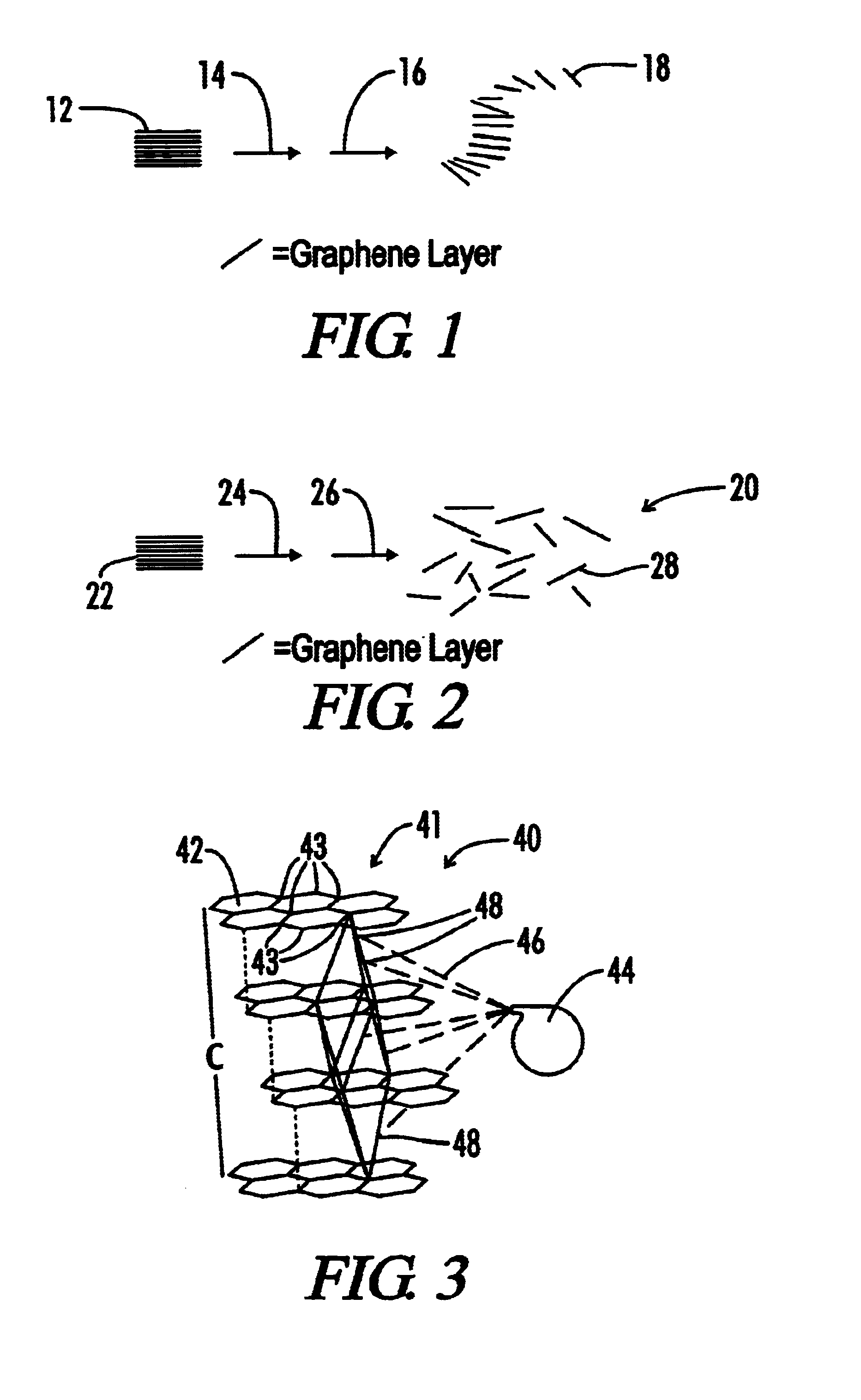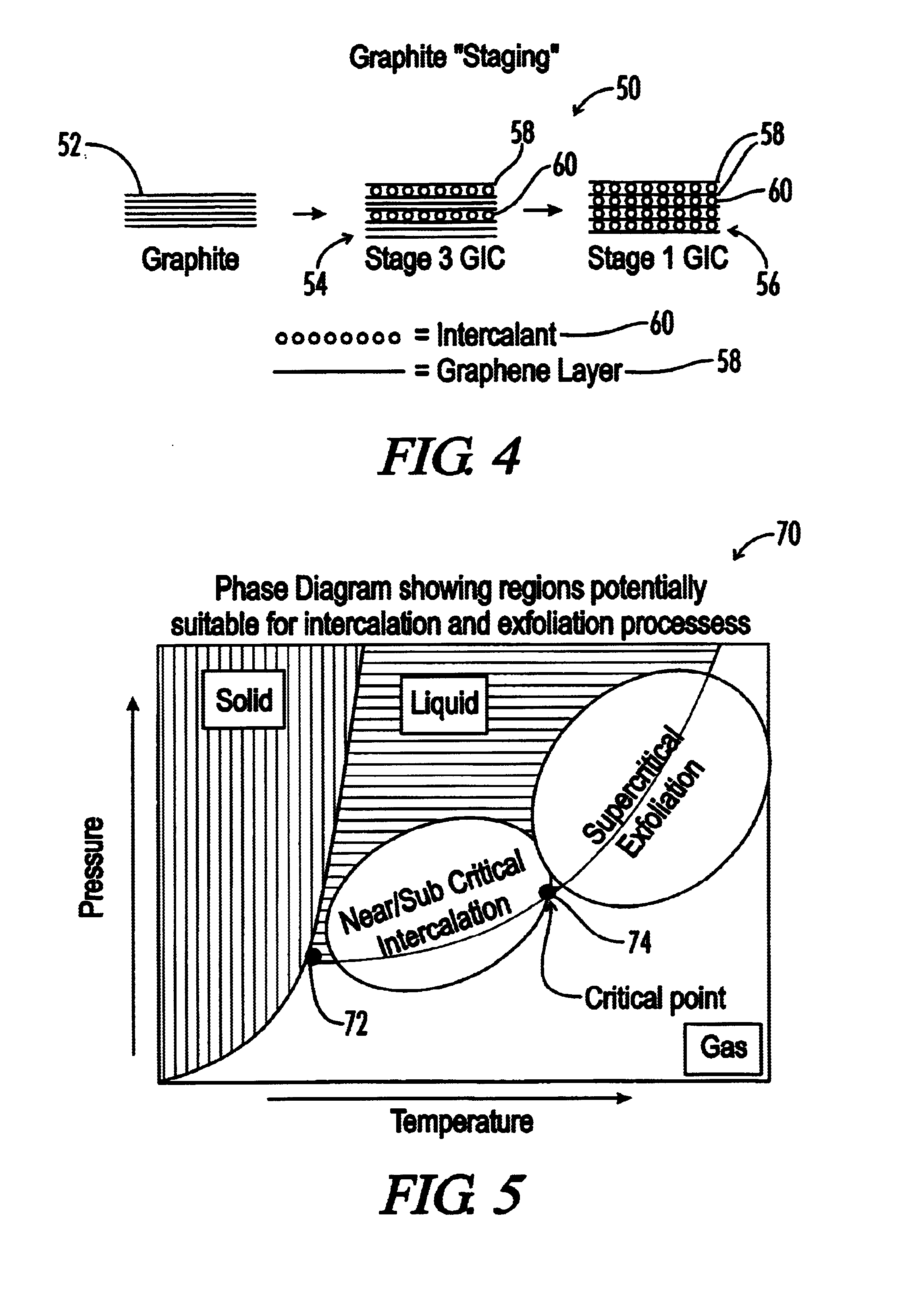Graphite composites and methods of making such composites
a graphite and composite technology, applied in the field of graphite, can solve the problems of requiring significant effluent remediation, the above process cannot be used to control the amount of exfoliation, and the inability to produce nano-particle sized graphite flakes, so as to reduce the need for pollution abatement and reduce the cost of material
- Summary
- Abstract
- Description
- Claims
- Application Information
AI Technical Summary
Benefits of technology
Problems solved by technology
Method used
Image
Examples
Embodiment Construction
[0027]The invention will be further described in regards to the accompanying drawings. Whenever possible, like or the same reference numerals may be used to describe like or the same elements. Illustrated in FIG. 2 is a schematic diagram of one embodiment of a method to modify graphite in accordance with the invention, generally designated 20.
[0028]The method includes a step 24 of intercalating at least one flake of natural graphite 22 with an intercalant and optionally an oxidizing agent. In one embodiment, the natural graphite flakes are intercalated by dispersing the flakes in a solution containing a mixture of nitric acid (oxidizing agent) and sulfuric acid (intercalant). The intercalation solution may contain other acidic compounds and intercalating agents instead of or in addition to sulfuric acid. Examples of other acidic compounds include solutions containing organic acids, e.g., acetic acid, nitric acid, potassium chlorate, chromic acid, potassium permanganate, potassium ch...
PUM
| Property | Measurement | Unit |
|---|---|---|
| temperature | aaaaa | aaaaa |
| thickness | aaaaa | aaaaa |
| thickness | aaaaa | aaaaa |
Abstract
Description
Claims
Application Information
 Login to View More
Login to View More - R&D
- Intellectual Property
- Life Sciences
- Materials
- Tech Scout
- Unparalleled Data Quality
- Higher Quality Content
- 60% Fewer Hallucinations
Browse by: Latest US Patents, China's latest patents, Technical Efficacy Thesaurus, Application Domain, Technology Topic, Popular Technical Reports.
© 2025 PatSnap. All rights reserved.Legal|Privacy policy|Modern Slavery Act Transparency Statement|Sitemap|About US| Contact US: help@patsnap.com


